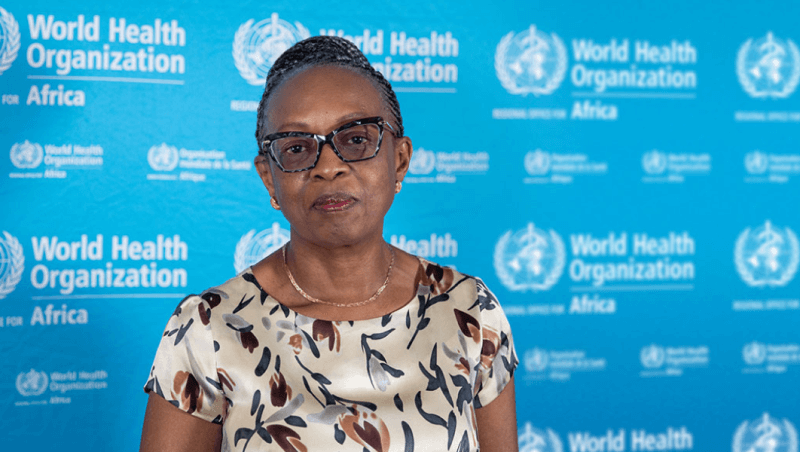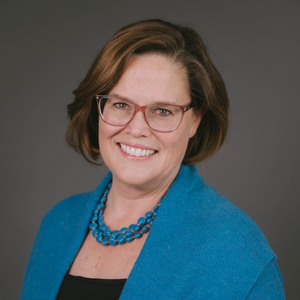By Matshidiso Moeti and Amie Batson
The nature of global health challenges is rapidly evolving. From pandemics to superbugs to climate change, health threats are becoming increasingly complex, interconnected, and unpredictable. The persistence of Mpox is a clear example of how infectious diseases can persist and transform, highlighting the importance of adaptive and proactive leadership in health systems.
Experts worldwide note that responding effectively to these evolving challenges demands leadership that is collaborative, empathetic, comfortable with uncertainty, and, crucially, representative of the populations being served. In health, this shift can only be achieved by creating space for women as well as men in leadership roles.

Despite constituting 75 percent of the world’s health workforce, women occupy only 25 percent of senior leadership roles in health institutions. This is despite women being disproportionately impacted by the world’s most pressing health challenges and typically serving as the primary caregivers and health decision-makers for their families. These roles afford them a unique perspective to contribute to effective and sustainable solutions informed by their technical expertise and lived experiences.
Women leaders are also more likely to allocate resources to programs that prioritize the needs of underserved groups, such as education, health programs for women and girls, and social safety nets.
Studies show that institutions with diverse leadership teams that harness the talents of women and men equally perform better—they deliver greater returns and produce new and better innovations. Therefore, gender disparity in leadership within the health sector is not only an issue of equity but also a missed opportunity to improve health outcomes for women and everyone. Women are the most underutilized resource in health leadership.
In Africa, women are the backbone of health systems and communities, and their expertise is critical to overcoming Africa’s health challenges and meeting the needs of women and men alike. Women’s roles as caregivers and community leaders position them uniquely to navigate health issues and foster community-driven solutions. So, how do we pioneer a new approach to leadership in a sector with too few women at the decision-making table?

Invest more in advancing women’s leadership.
Like countless women who must work longer and harder to earn the same pay (and recognition) as their male counterparts, we understand women’s challenges in ascending the leadership ladder and succeeding within systems not built to support them. From harmful stereotypes and harassment to pay inequities, too many women face gender biases and professional barriers that men do not.
To help women navigate these challenges, we need more significant investment in programs that support African women leaders in the health and development sector. With greater access to leadership tools, networking, peer support, and mentorship, these programs can help create a thriving global network of leaders ready to make transformational changes in public health and hold the ladder for more women to do the same.
That is why our two organizations launched a new partnership to increase investment in women’s leadership programs. WHO AFRO’s existing women’s pathway to leadership empowerment initiatives, alongside WomenLift Health’s leadership development programs, are excellent examples of how focused investments can elevate women leaders and prepare them for high-level decision-making roles in health systems. Building on these achievements, the new partnership will help ensure mid-career women in the African Region can rise as transformative leaders to navigate the continent’s complex health challenges.
At the WHO African Region (AFRO), prioritizing gender equality at all levels of decision-making has been essential for driving meaningful impact on communities’ health outcomes. By promoting gender equity, AFRO aims to create health systems that are more resilient and better prepared to respond to global health challenges.
Building inclusive workplaces through leadership and allyship
To create space for more women at decision-making tables, we need all leaders—women and men—to use their influence and power to support women. This means extending mentorship and training opportunities to women and creating more accountability within organizations for gender biases. Institutional leaders and allies can help the next generation of African women leaders in public health by creating enabling and inclusive environments.
We may not be able to predict the next health crisis, but we can build health systems that are more resilient and better prepared to respond swiftly, effectively, and equitably when it arrives while ensuring prevention and treatment of a range of health problems, including NCDs and mental health. The solution is all around us. Some of the brightest minds in health, science, and medicine on the continent today are women. Let’s work together to bring more women to the leadership table, where their ideas and expertise can improve health outcomes and lives.
Matshidiso Moeti is the WHO Regional Director for Africa and Amie Batson is the President of WomenLift Health
